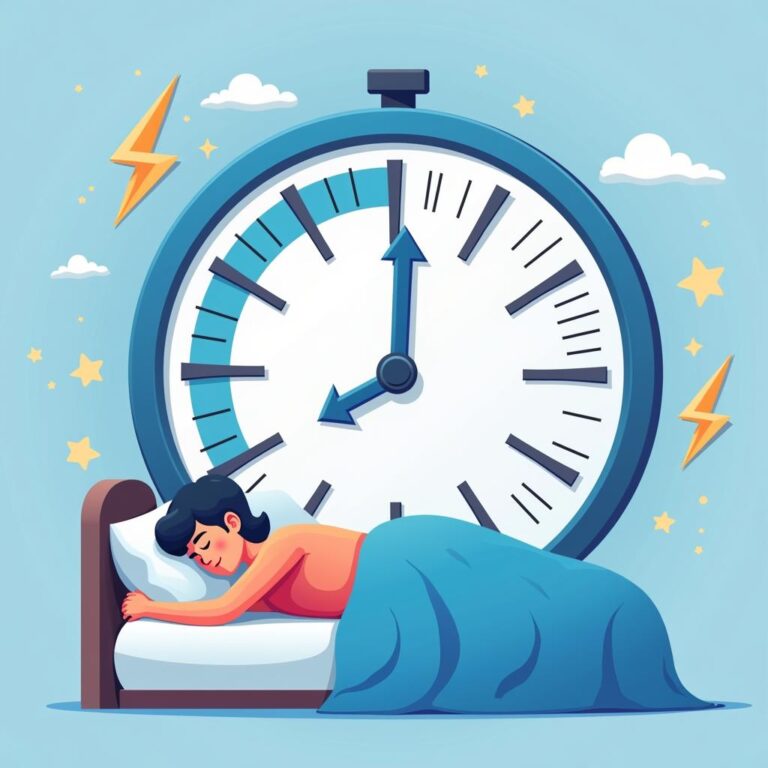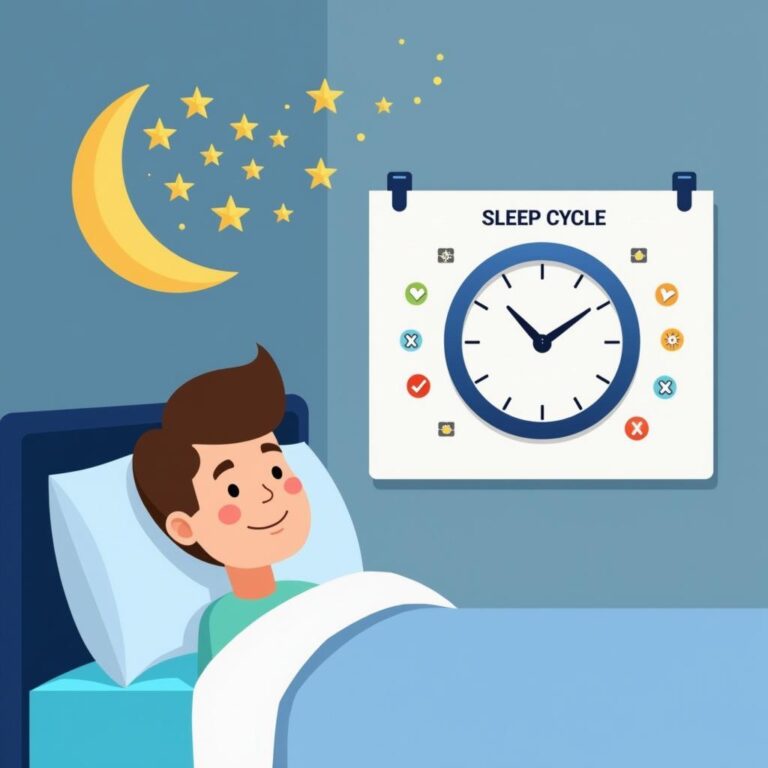In our fast-paced world, managing sleep cycles has become increasingly important. Proper sleep management not only affects our mood but also our productivity and overall health. Understanding the best way to manage sleep cycles can lead to consistent energy levels throughout the day. Here’s a comprehensive guide to achieving optimal sleep management.
Understanding Sleep Cycles
Before diving into strategies for managing sleep cycles, it’s crucial to understand what a sleep cycle is. Sleep is divided into several stages, primarily categorized into two types: REM (Rapid Eye Movement) and non-REM sleep. A typical sleep cycle lasts about 90 minutes, going through four stages:
- Stage 1: Light Sleep
- Stage 2: Onset of Sleep
- Stage 3: Deep Sleep
- Stage 4: REM Sleep
Throughout the night, an individual cycles through these stages multiple times, which is essential for restorative sleep. Disruptions to this cycle can lead to feelings of fatigue and irritability the next day. Therefore, the best way to manage sleep cycles optimally is to ensure that you complete these stages adequately.
Establish a Consistent Sleep Schedule
One of the best ways to manage sleep cycles is to establish a consistent sleep schedule. Going to bed and waking up at the same time every day helps regulate your body’s internal clock. This regularity enhances the quality of sleep, promotes better control over sleep cycles, and improves overall alertness during waking hours. Here are some tips to maintain a consistent sleep schedule:
- Stick to the same bedtime and wake-up time, even on weekends.
- Avoid naps longer than 20-30 minutes during the day to maintain nighttime sleep quality.
- Use an alarm to help you wake up at the same time each morning.
Create a Sleep-Inducing Environment
Your sleep environment plays a significant role in how well you manage your sleep cycles. A conducive environment promotes relaxation and helps you fall asleep faster. Consider the following aspects:
- Lighting: Make your bedroom dark during sleep hours. Use blackout curtains or a sleep mask to block out light.
- Noise: Reduce noise disturbances. White noise machines or earplugs can help drown out surrounding sounds.
- Temperature: Keep your bedroom at a cool temperature, typically between 60°F to 67°F (15°C to 19°C), which is optimal for sleep.
- Comfortable Bedding: Invest in a quality mattress and pillows that suit your sleeping style.
Adopt Sleep-Friendly Habits
Incorporating sleep-friendly habits into your daily routine can significantly improve the way you manage sleep cycles. Here are some effective practices:
- Limit Screen Time: The blue light emitted by screens can interfere with your sleep cycle. Aim to turn off electronic devices at least an hour before bedtime.
- Watch Your Diet: Avoid heavy meals, caffeine, and alcohol close to bedtime. These can disrupt your sleep cycle and lead to poor sleep quality.
- Exercise Regularly: Engaging in physical activity can help you fall asleep faster and enjoy deeper sleep. However, avoid vigorous workouts shortly before bedtime.
Practice Relaxation Techniques
Stress and anxiety can hinder your ability to fall asleep and disrupt your sleep cycles. Incorporating relaxation techniques into your nightly routine can promote better sleep. Consider the following:
- Meditation: Practicing mindfulness meditation can help calm your mind and prepare you for sleep.
- Deep Breathing Exercises: Engaging in deep breathing can reduce tension and pave the way for restful sleep.
- Gentle Yoga or Stretching: Light stretches can ease physical tension and signal your body that it’s time to wind down.
Utilize Sleep Aids Wisely
While lifestyle changes are often the best way to manage sleep cycles, some individuals may benefit from sleep aids. However, they should be used sparingly and with caution. Here are some points to consider:
- Natural Supplements: Melatonin, valerian root, and magnesium may help regulate sleep cycles for some. Always consult a healthcare professional before trying new supplements.
- Prescription Medications: If you’re struggling with chronic sleep issues, seek medical advice to discuss potential medication options that suit your needs.
Track Your Sleep Patterns
Keeping track of your sleep patterns can provide invaluable insight into how well you’re managing your sleep cycles. This can be done through various methods:
- Sleep Journals: Record your bedtime, wake-up time, and general sleep quality to identify trends and areas for improvement.
- Sleep Tracker Apps: Utilize technology to monitor your sleep cycles, duration, and overall sleep quality.
- Wearable Devices: Many fitness trackers now incorporate sleep tracking features that can provide data on your sleep cycles.
Conclusion
Managing sleep cycles effectively is crucial for maintaining consistent energy levels and overall wellbeing. By establishing a regular sleep schedule, creating a conducive environment, adopting healthy habits, and utilizing relaxation techniques, you can drastically improve your sleep quality. Remember to track your sleep and consult with professionals if you’re struggling with persistent sleep issues. With the right approach and commitment, you can achieve restorative sleep that fuels your productivity and enhances your quality of life.







